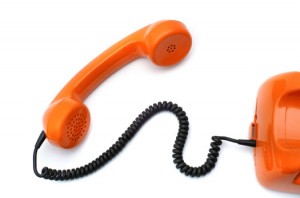By Tan Joo Hymn
Story-telling, most of us are likely to think, is for little children.
Wrong.
 Some of the most successful corporations in the world use stories to inform and motivate their staff. A corporate handbook is boring and didactic, and few employees bother even to read it. But if the values and culture of the company are captured in an inspirational story, the message is not just immediately absorbed by those listening it can spread through the company like wild fire, passing from co-worker to co-worker with no effort on the part of the management.
Some of the most successful corporations in the world use stories to inform and motivate their staff. A corporate handbook is boring and didactic, and few employees bother even to read it. But if the values and culture of the company are captured in an inspirational story, the message is not just immediately absorbed by those listening it can spread through the company like wild fire, passing from co-worker to co-worker with no effort on the part of the management.
This is the power of story-telling.
The oral storytelling tradition is almost as old as homo sapiens themselves. Stories were told around the fire for entertainment, and also to pass on knowledge and wisdom. Storytelling is hardwired into the human psyche. Children crave stories and learn much from them.
As adults we forget the value of stories. But the truth is that we listen to and tell stories many times a day, in so casual a manner that we hardly realise that is what we are doing. Recounting to a colleague the terrible delay due to an accident on the PIE, telling your spouse about the meeting when your boss finally admitted his mistake these are stories.
Stories can also be an effective springboard from which discussions on issues can be launched. Stories are disarming, they leave the interpretation to the listeners, and a richer, more textured dialogue can be built upon stories.
Bamboo Women, Grass Girls: Tales of resilience
Join us as we share with you feisty folktales from around the world and reveal to you the power of storytelling to promote positive images of strong women! Contrary to the popular belief that damsels in distress are the only female protagonists in folktales, powerful heroines also exist in traditional stories that can serve as viable role models for one and all.
AWARE will be launching the Workplace Sexual Harassment Workshop very soon. The stories we have picked relate to this theme. The one-hour storytelling session will be followed by an open dialogue on any topic that the stories throw up.
So come and experience for yourselves the wonder and power of stories!
Date: Friday 5 March
Time: 8 pm
Venue: AWARE Centre, Block 5 Dover Crescent #01-22, Singapore 130005
Story-tellers: Tan Joo Hymn and Verena Tay
Please email priyanka@aware.org.sg or call 67797137 to register.







 Local nightspot Overeasy made news sites and blogs the world over with its recent ‘Fill My Cups’ marketing ploy. It offered free drinks to women based on their bra size – and it was rewarded with a full house.
Local nightspot Overeasy made news sites and blogs the world over with its recent ‘Fill My Cups’ marketing ploy. It offered free drinks to women based on their bra size – and it was rewarded with a full house.